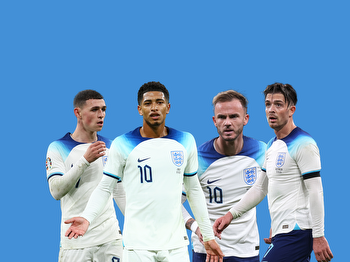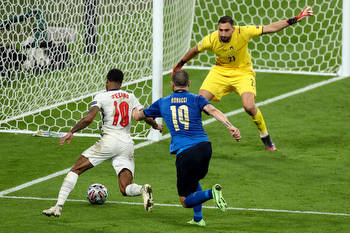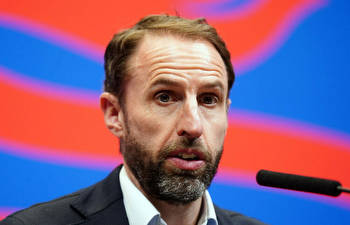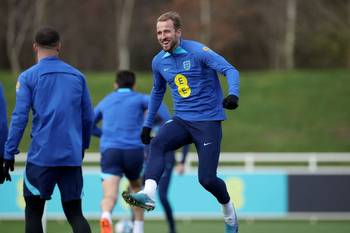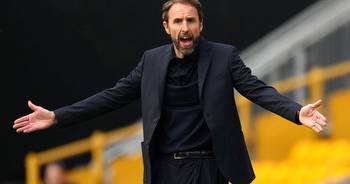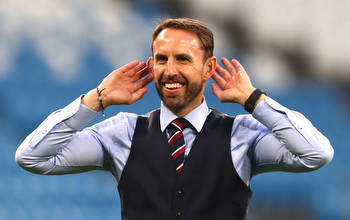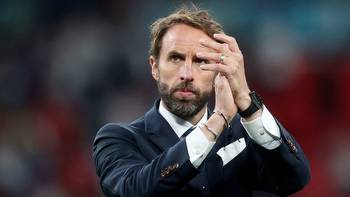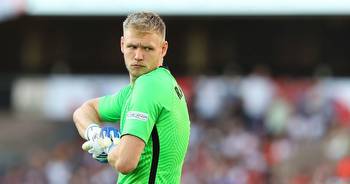Gareth Southgate could win Euro 2024 and still not sway his England critics
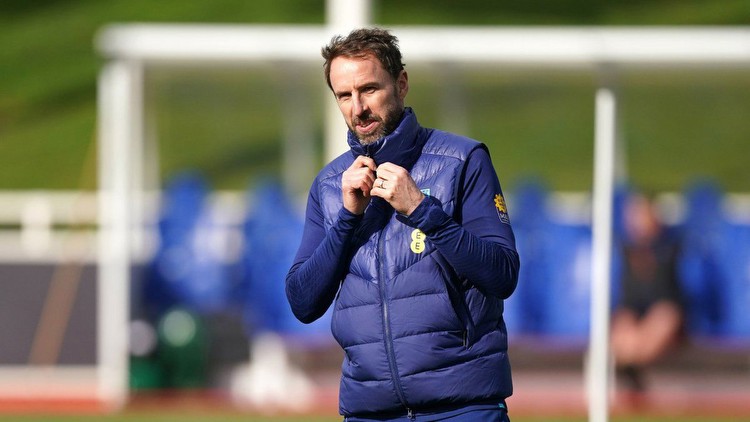
So begins the last cycle of Gareth Southgate, England manager. Such was his internal struggle before deciding to stay on for another 18 months, it is unthinkable that Southgate remains beyond Euro 2024. He will win the tournament and dance off into the sunset, swelled with pride and vindication (and some people still saying “actually, but”). Or he won’t win it and will leave as England’s great just-not-quite with a side order of spite.
There were entire eras when England would have clung on to just-not-quite as if it were the holy grail. The viciousness of the criticism of Southgate is unequivocally at odds with his comparative achievement in the role. He is, without doubt, England’s most successful manager since Alf Ramsey, but there will be those reading that statement who now have a deep frown on their face or spittle appearing in the corners of their mouths.
To an extent, this reflects the inevitable erosion of patience that occurs over time. Or, to be more blunt: you’ve had three goes at it now, pal, and we still haven’t won. For that, Southgate has probably paid the price for early promise. England had suffered two decades of misery during which they never even shared a postcode with glory, let alone stared it square in the face. But you can’t show people diamonds and then try to flog them rhinestones, even at half the price.
The general charge is that Southgate is, to be frank, a bottler. That he has taken England so far but cannot lead them over the line because he is tactically conservative and perhaps just a little afraid. Even his sartorial charm, the waistcoat that became an improbable fashion icon in 2018, is now a symbol of his inherent safeness. Southgate has a deliberate lack of sharp edges, a good company man. He arrived when England craved that comfort. Now perhaps we’re ready to date a bad boy again.
Within that general theory, more specific, nuanced charges lie. The most obvious is that England benefited from easy paths through tournaments until they didn’t, at which point they lost. To which the evident retort is: err, Romania 2000, Russia and Croatia 2008, Costa Rica 2014, Iceland 2016. If only beating half-decent teams (and Germany) at major tournaments is a problem, we have come a long way after all.
Southgate is certainly loyal to those he knows and trusts – perhaps to a fault. There is no better place to improve your reputation than in the cold air just outside the England squad or team. But much of this debate rages along lines of club loyalty and inherent personal preference. The only tenet on which everyone should agree is that you will never please everybody.
For all that Southgate’s critics insist that he has the deepest talent pool in our history (and it is an argument that carries some merit), how many of the current crop is in the top three of their position in the world? Harry Kane almost certainly. And then…who? You can make arguments for Jude Bellingham, Declan Rice and Bukayo Saka based on current form and potential, but that’s it. Between 1995 and 2005, five different Englishmen finished in the top three of the Ballon d’Or. Since then, players of 11 different nationalities have – none of them were English.
In cycles past, criticism of the England manager was mitigated by the character of their players. The difference now is not in the quality of the squad (those overseen by Glenn Hoddle in 1998 and Sven Goran Eriksson in 2002 were surely better), but the manner in which they seem to embrace playing for their country. Gone are the big club cliques, gone are the egos and gone are the Ballon d’Or podium finishers. England are, in every sense, a team. And while Southgate deserves credit for creating that culture, it now punishes him. Blaming the players for not caring enough or not giving enough no longer works – so you blame the manager.
At the heart of the Southgate debate is a quasi-philosophical quandary. Picture this: you are given a group of footballers that contains far better attacking players than defenders. That leaves you with two choices: throw caution to the wind and attack (aiming to maximise your strengths) or protect the defenders by playing with control and relying upon the attackers to create enough moments of danger (aiming to minimise your weaknesses).
Southgate is a tactical pragmatist – he has chosen the second option. That has hardly barred England from scoring goals at major tournaments (they average over two goals per knockout game over the last two major tournaments), but in tight, high-profile matches that England haven’t won – Croatia 2018, Italy 2021, France 2022 – his critics conclude that he has missed his chance. That may well be true, but we must at least consider that England’s defence may have been exposed with the attack, attack, attack plan.
You wonder, then, whether the barbs, the slinging arrows and social media curses, say more about Southgate’s audience than him. Certainly, his approval rating is far higher amongst regular match-going England supporters than those who opine online. Are we generally more angry, more desperate, more in need of the distraction that a young and gifted and triumphant England team would provide? Possibly – have you seen the state of the world?
The great dichotomy of the last age of Southgate is that all of this matters and none of it matters at the same time. He will be safe while he carries on winning – there is no obvious British replacement. But the England manager’s future is ultimately decided by the court of public opinion, and that tide is now turning. If we have learnt anything over the last decade of social, political and cultural discourse, it’s that nobody ever changes their mind. Lose in Naples on Thursday evening, and the anger will fire up again. Win or draw and it’ll only be temporarily paused.
Three Italy players to watch
By Layton Ryan-Parson
Nicolo Barella
Despite being small in stature, the box-to-box Inter midfielder provides a significant presence in central midfield and has excellent close control and a good passing range. He was ever-present in the Inter Milan team that won a first Serie A title in 11 years in 2021 and was crucial to Italy’s Euro 2020 win the same summer. The 26-year-old continues to be an integral cog for both club and country.
Mateo Retegui
An Argentine-born forward whose grandmother was born in Italy has received his first senior call-up. Retegui is something of an unknown quantity in Europe having spent his entire career to date in Argentina. Last season the striker netted 23 goals for Club Atletico Tigre catching the eye of Roberto Mancini who believes there is a lack of attacking talent being produced in Italy.
Gianluca Scamacca
The powerful striker was a big-money signing for West Ham but has slipped out of favour recently, only starting three of their 16 games since the World Cup. However, his aerial threat and ability to bring wingers into play cannot be underestimated. Given his limited impact so far in the Premier League, Scammaca will be keen to showcase his qualities and who better to do so against than England?

